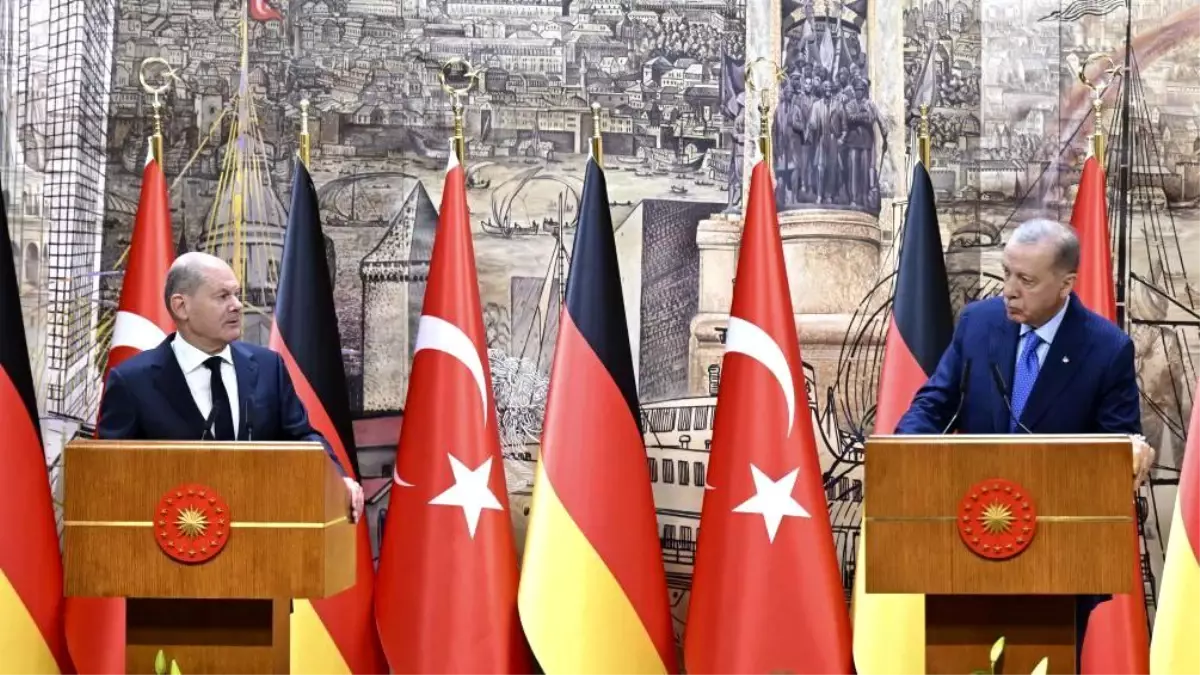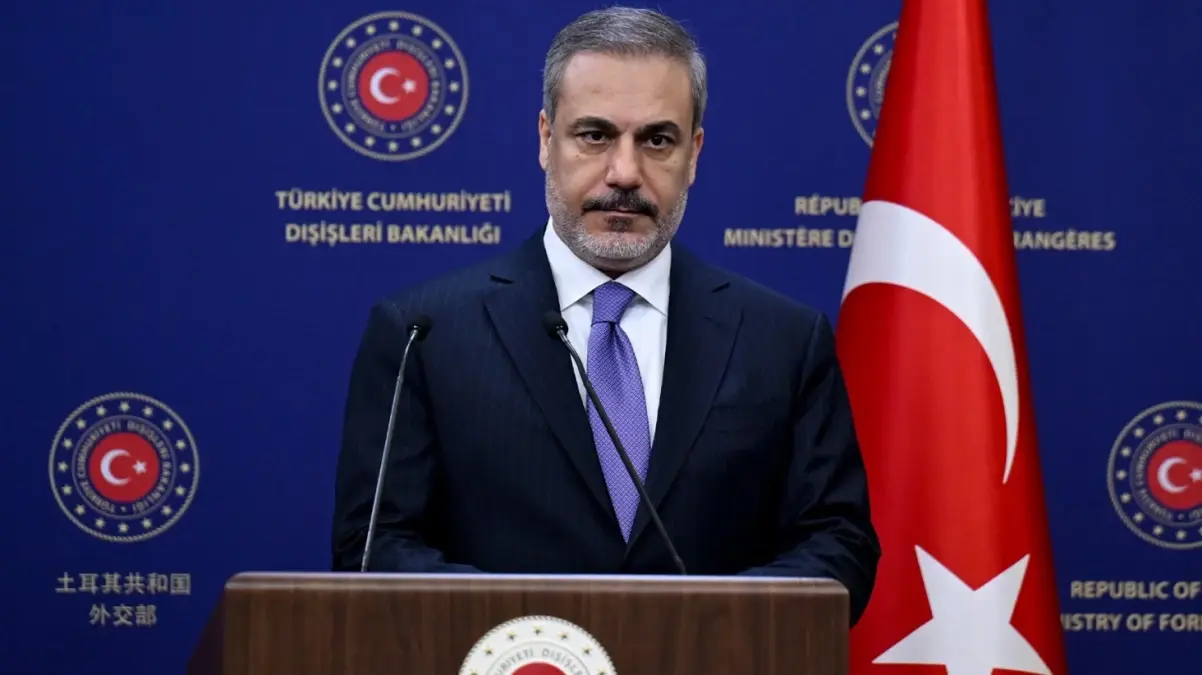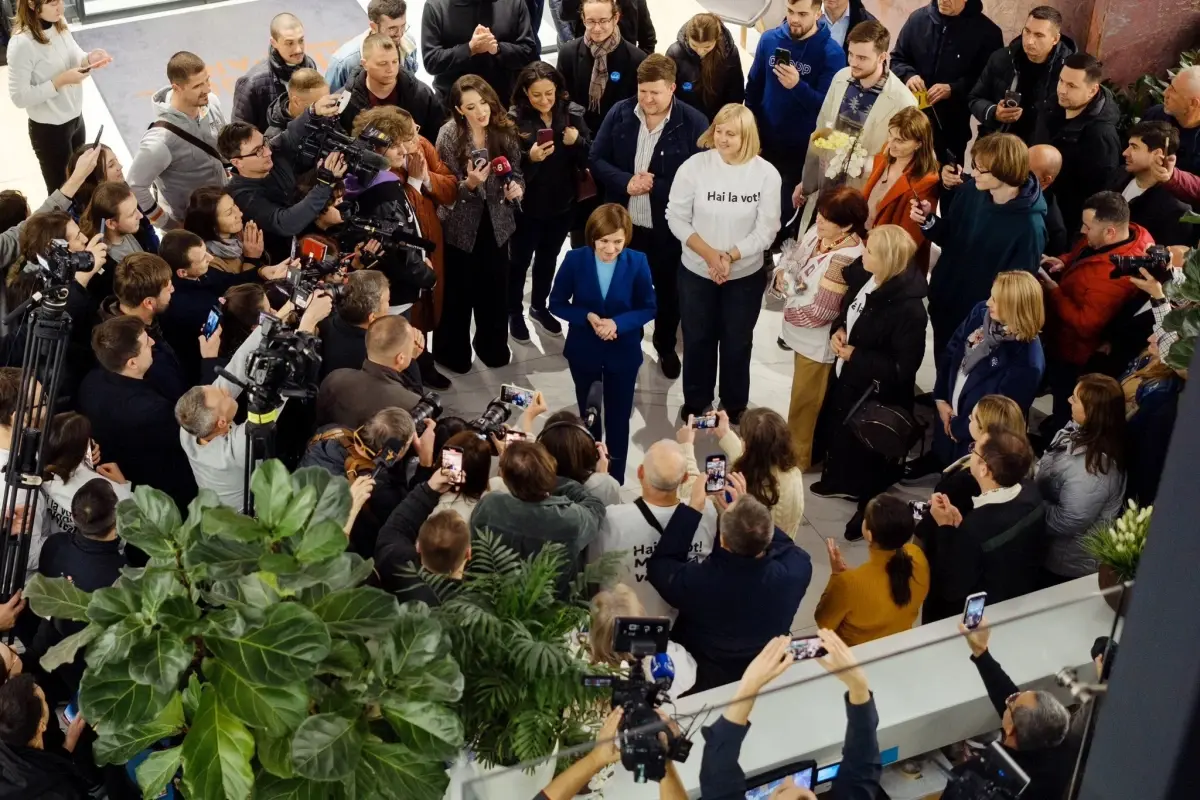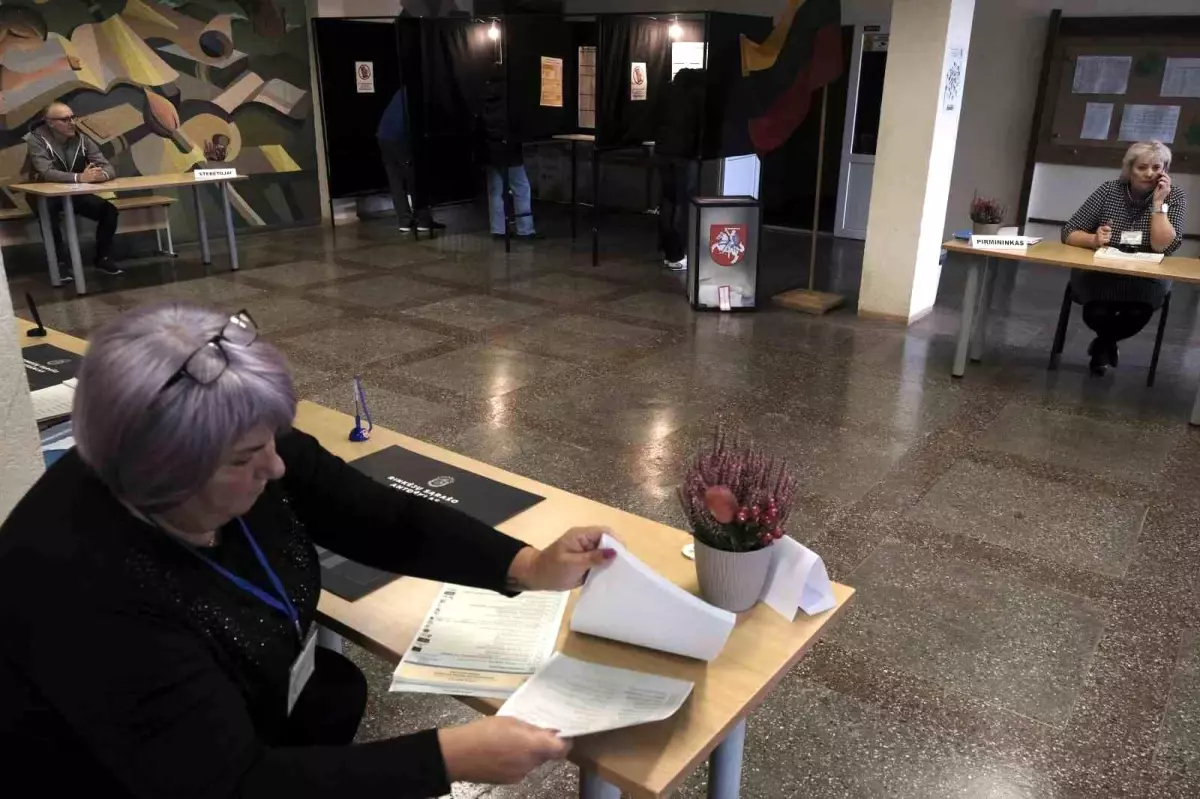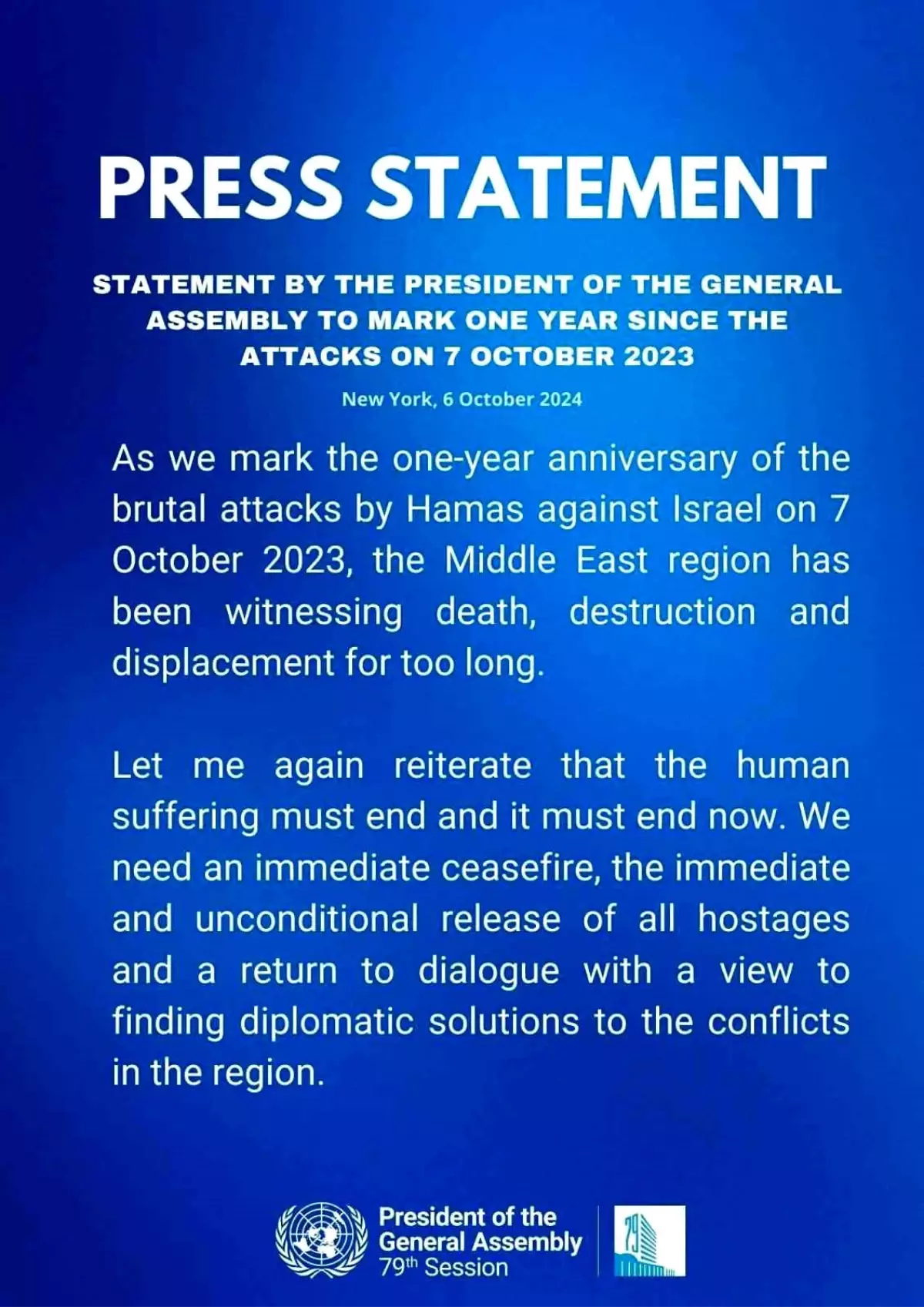President Recep Tayyip Erdoğan and German Chancellor Olaf Scholz met in Istanbul on October 19. This was their second face-to-face meeting in the last two months following their discussions in New York in September. During their one-on-one and delegation talks, the leaders made decisions that will usher in a new era of cooperation between the two countries. A significant development was the decision by the Turkish and German governments to revitalize the “intergovernmental consultation mechanism.” At a press conference, Scholz expressed a desire to restart intergovernmental negotiations with Turkey. He stated, “In this way, many bilateral structures related to foreign policy and cooperation in the defense industry have been revitalized. Germany is also working hard to advance the relations between the EU and Turkey.”
Ankara and Berlin established this “intergovernmental consultation mechanism” in 2016. Its first and only meeting took place on January 22, 2016, in Berlin, led by then-chancellors Angela Merkel and Ahmet Davutoğlu, focusing mainly on security, migration, and economic issues. The mechanism had not met again due to the German Bundestag’s recognition of the 1915 events as “genocide” on June 2, 2016, and the deterioration of relations with the West after the coup attempt in Turkey. With the decision made at the Erdoğan-Scholz meeting, both parties are expected to soon reactivate the mechanism and initiate a process that strengthens all areas of bilateral relations, particularly aiming for tangible results in the economic sector. Both leaders expressed the goal of increasing their trade volume from over $50 billion to $60 billion.
Regarding defense cooperation, Germany aims to make progress in strategic partnership areas in this new period. A significant reason for a shift in stance on the sale of military products, which Turkey has long requested, is noted to be this. Scholz and Erdoğan’s statements at the press conference indicated an important consensus between the parties. Erdoğan remarked, “We desire to overcome past difficulties in the procurement of defense industry products and enhance our cooperation. I want to once again express my appreciation for my dear friend Scholz’s efforts in this regard.” Scholz emphasized the alliance relationship between Turkey and NATO and signaled a willingness for more cooperation in the defense industry.
One of the most anticipated topics during the meeting was the sale of Eurofighter jets, developed by Germany in collaboration with the UK, Spain, and Italy, to Turkey. Germany had long opposed the sale. However, reports emerged earlier in October that a technical team had visited Turkey to begin discussions with Berlin’s approval. Scholz responded to a question about the Eurofighter sale by stating that the process would be managed by the UK. He noted, “There are projects in the early stages, including negotiations led by the UK government. Developments will occur in this regard.”
Just a week before Scholz’s visit, Germany approved the sale of guided air defense missiles and torpedoes to Turkey, valued at approximately €250 million, viewed as a significant gesture and message ahead of the Istanbul meeting.
Migration Issues
Another important topic on Erdoğan and Scholz’s agenda was migration. Turkey and Germany have cooperated on migration, especially concerning the influx from Syria, since late 2015. This collaboration formed the basis for the ongoing agreement between Turkey and the EU established on March 18, 2016. Germany believes that this cooperation has led to a decrease in the number of incoming refugees but acknowledges the need for continued joint efforts against organized crime and human trafficking.
Asylum Applications from Turkey
Another critical subject of negotiation has been the significant increase in the number of Turkish citizens applying for asylum in Germany for economic reasons in recent years. According to German diplomatic sources, only about 5% of Turkish asylum applications are approved. Some of those whose applications are rejected return to Turkey, while others remain in Germany illegally. Germany has been negotiating with Ankara to facilitate the return of nearly 15,000 Turks to their country, with reports suggesting that both sides have agreed on the mass repatriation of these citizens. Ankara has not confirmed these claims, while Berlin seeks to enhance cooperation on this issue through improved relations with Ankara.
No Progress on EU Relations
The revitalization of Turkey-EU relations was also discussed during the Erdoğan-Scholz meeting, but no positive messages emerged. Scholz expressed satisfaction with the developing dialogue between Turkey and Greece. He stated, “We wish for the development of relations between Turkey and the EU. I was also very pleased that the Turkish Foreign Minister attended the EU’s Informal Foreign Ministers Conference for the first time in five years this August.” Erdoğan reiterated expectations for progress on updating the customs union and visa liberalization. Germany emphasizes that desired revitalization in Turkey-EU relations will occur if Turkey returns to a reform process regarding human rights, democratization, and the rule of law, and if a new process begins in the Cyprus issue under UN parameters.
Dialogue with Russia
During their meeting, the leaders also addressed Russia’s invasion attempt in Ukraine. German media reported that Scholz wants to leverage Erdoğan’s dialogue with Russian President Vladimir Putin to open a channel for a peace agreement. Scholz emphasized that Turkey and Germany are aligned in this conflict, stating, “Ukraine can rely on us. But what can we do to ensure that this war does not go on forever? Russia’s aggression threatens the peace order of all Europe, and therefore we must act decisively as NATO allies.”
Disagreement on Israel
In the press conference, Erdoğan and Scholz publicly recorded their differing positions regarding the Israel-Hamas war. Scholz recalled Germany’s unique position regarding the protection of Israel’s existence, stating that it was not correct to define the events in Palestinian territories as “genocide.” Erdoğan accused the Israeli government of committing genocide, recalling that South Africa has filed a case with the International Court of Justice on this issue, and that Turkey is involved. Erdoğan stated, “Because the killing of 50,000 people, with over 100,000 wounded, cannot be justified by saying, ‘You did well with the F-35s.’ It makes one ask, ‘Where are you going?’ Then why was this Court of Justice established?”
Source: BBC

